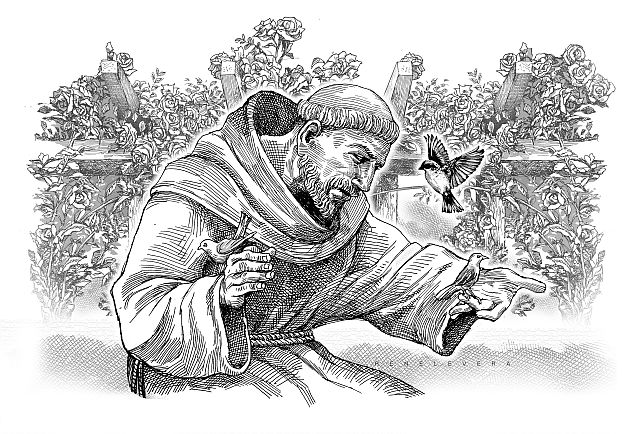
Years ago, I wrote this poem entitled “Thank You.”
To think that I owe you my deepest thanks,
And I have done nothing except sit here,
As though expecting someone to appear
Suddenly, on the path between the banks
Of flowers, but the glare of noontime blanks
The eyes, and happily the inner ear
Catches your voice ever present and clear,
Calls on the mind and the heart to close ranks,
And begs the mouth to mutter something true,
And hands to reach for the path, and to pick
A rose or two before someone arrives,
And then who knows if that someone is you,
Because you’re in my mind, and I am quick
To celebrate the linkage of our lives.
I wrote this — a sonnet — in a coffee shop, on the side of which was a path lined with flowers. What they were exactly I cannot recall now. They were probably roses because that was how they ended up in the poem, which has its own stylistic demands.
The idea of the poem had stayed with me since the time I completed the treatment for my cancer. Many people had helped me and my family with money, prayers and encouragement. And the only way I could thank them was by writing a poem (in the same way that, in Anatole France’s story, “Our Lady’s Juggler,” the simple monk Barnaby, a former juggler, had nothing but his juggling talent to offer to the Blessed Virgin Mary).
When I finally got around to writing the piece, I had it and a yellow rose printed on a bookmark, copies of which I sent to friends and benefactors.
I thought of the poem when I read the passage in the Gospel of Luke about the ten lepers who called out to Jesus as he was travelling to Jerusalem passing through Samaria and Galilee — “Jesus, Master! Have pity on us!” — to whom Jesus said in reply, “Go show yourselves to the priests.”
Luke writes—“As they were going they were cleansed. And one of them, realizing he had been healed, returned, glorifying God in a loud voice; and he fell at the feet of Jesus and thanked him. He was a Samaritan. Jesus said in reply, ‘Ten were cleansed, were they not? Where are the other nine? Has none but this foreigner returned to give thanks to God?’ Then he said to him, ‘Stand up and go; your faith has saved you.’”
During my treatment, I decided to keep myself busy by resuming a project I had earlier started—a collection of bird poems. Using a reference book, I wrote two poems a day, one bird to a poem, using a different verse form each time. I found the routine delightful, and this might have contributed to my healing too. At the end of my treatment, I had composed 129 poems for 129 birds. Looking back, aside from my prayers, I feel that this was my way of thanking God for my recovery.
What is it about birds that evokes the Divine? At one time, in London, the wife and I spent a morning at St. James’ Park. After walking around viewing the ponds and flower beds, we decided to rest. From the bench where we sat, we saw a man with outstretched arms. Little birds fed on the grain on his open hands. He reminded me of St. Francis even as his figure resembled that of the Crucified.
We read in the “Little Flowers of St. Francis” that the Poverello preached to the birds, which would gather around to listen to him. St. Francis would tell them, “My little sisters the birds, ye owe much to God, your Creator, and ye ought to sing his praise at all times and in all places…” And he would end his preaching by urging the birds to be thankful to God — “Beware, my little sisters, of the sin of ingratitude, and study always to give praise to God.”
Having finished his sermon, St. Francis blessed the birds. Whereupon they rose up and in the air arranged themselves into a cross, and then flew away in four groups — one towards the east, another towards the west, one towards the south, and one towards the north — singing as they went.